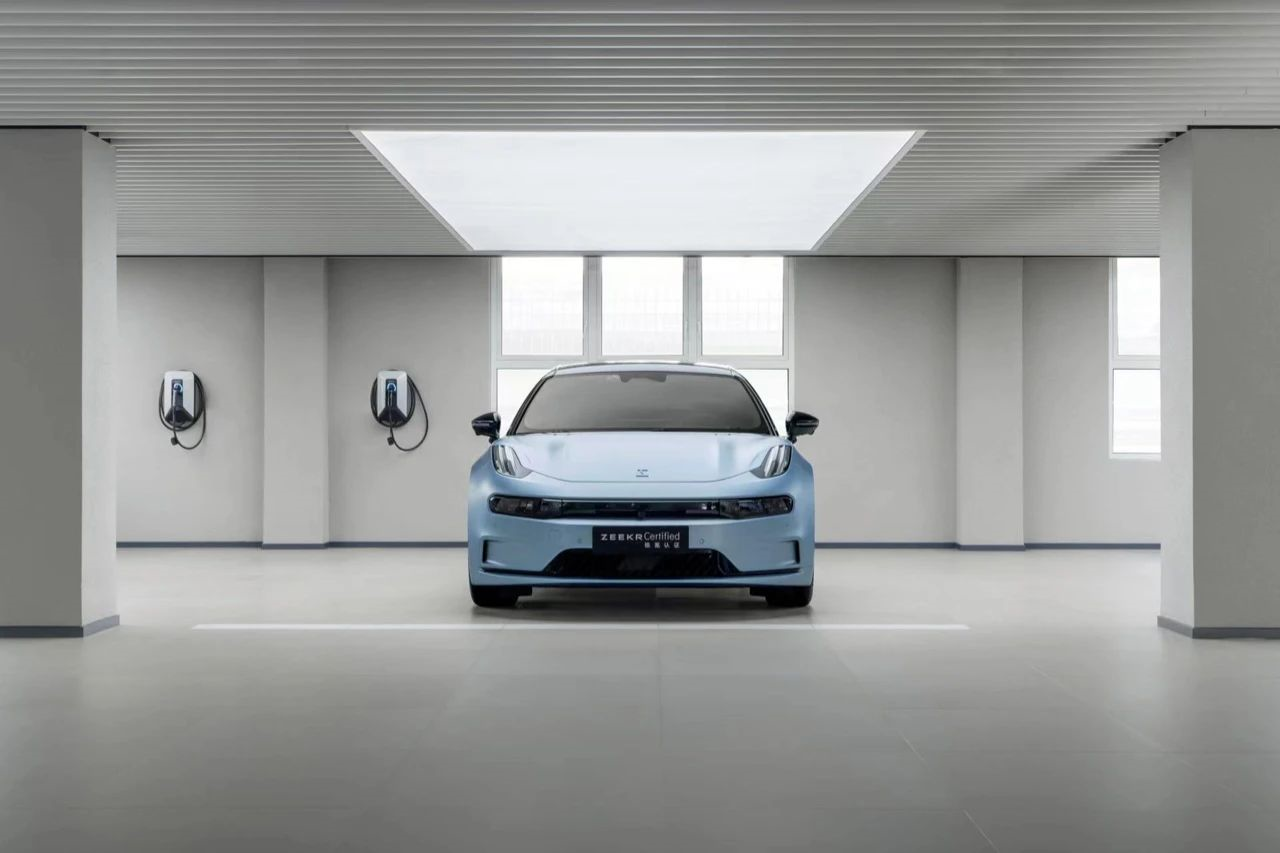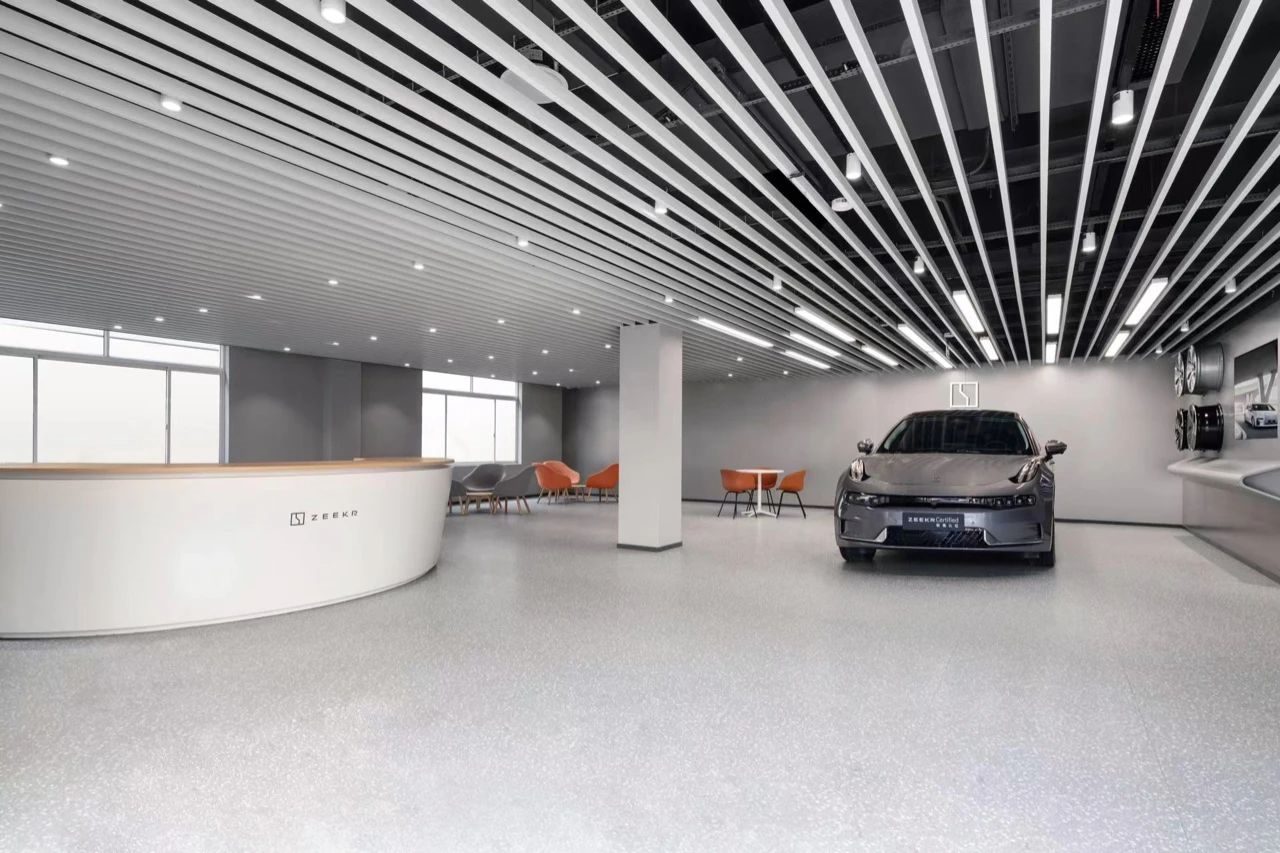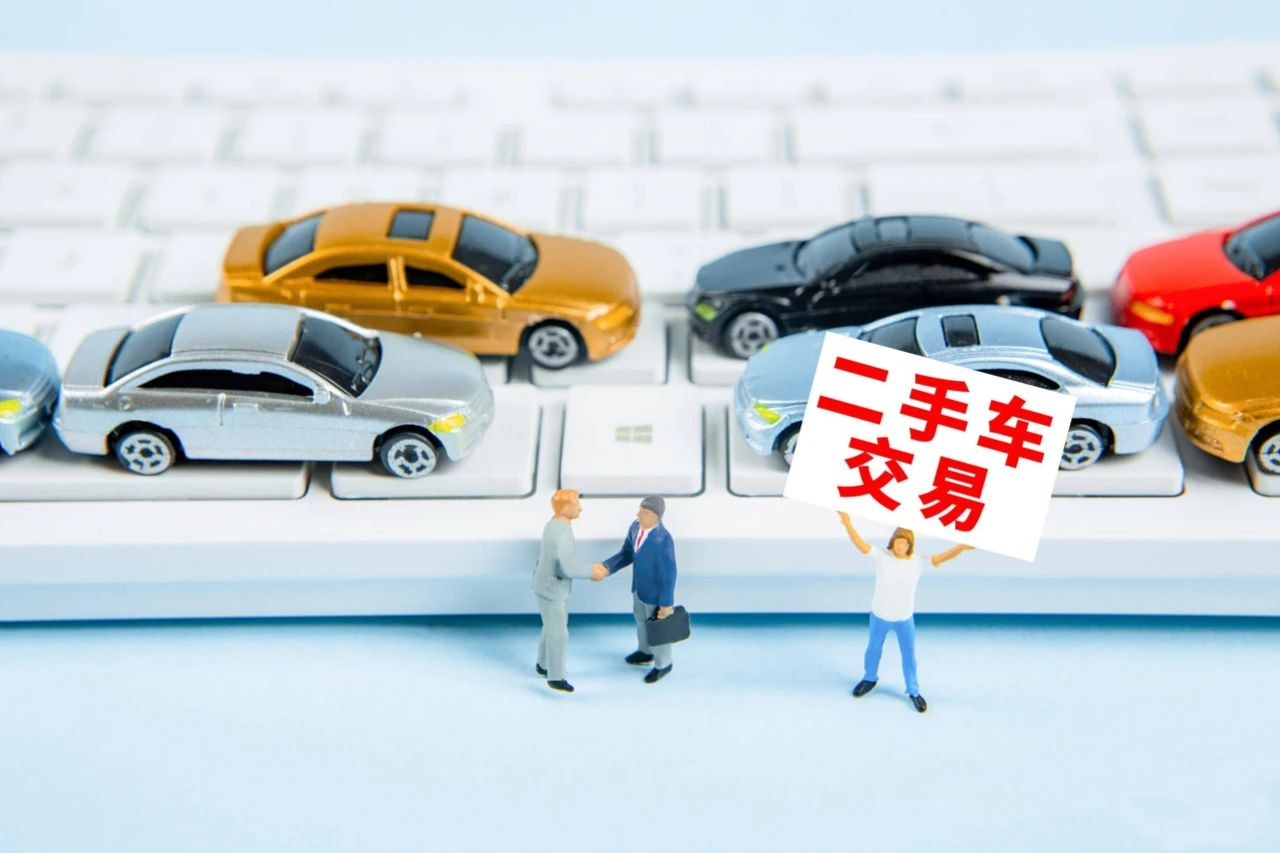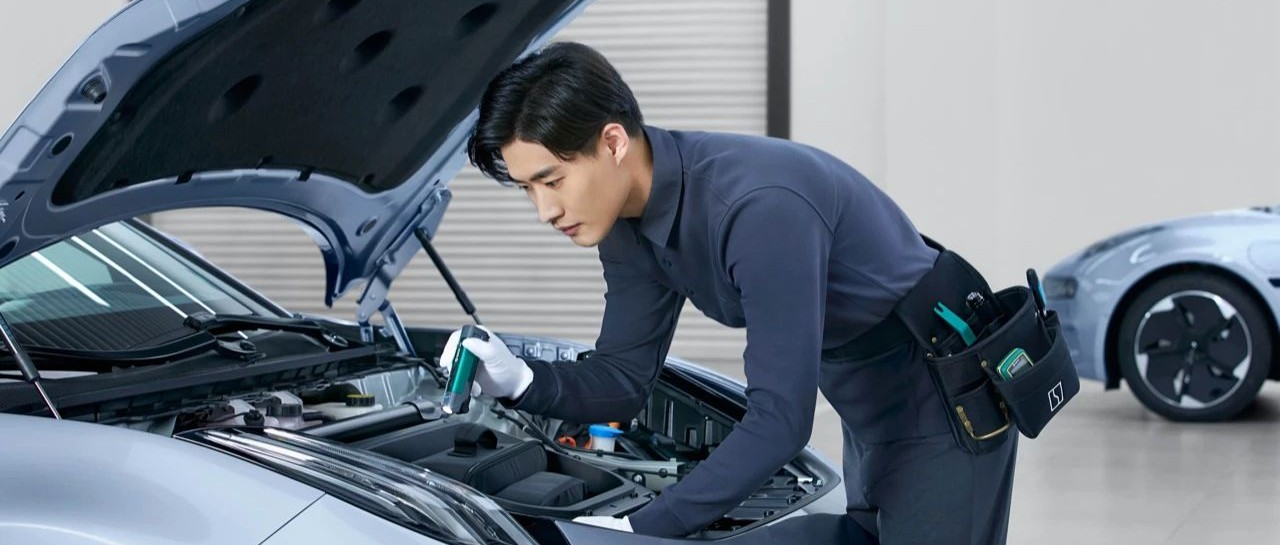Translation:
Article | Zheng Wen
Editor | Zhou Changxian
When it comes to the second-hand car market, many people’s impression may be “too complicated” and “unreliable”.
There are obviously many pain points in consumption, such as opaque transaction processes. Ordinary consumers can neither clearly judge the condition of the car nor know the corresponding price for the condition. In addition to the pitfalls of car condition and price, there are also many consumption traps in handling procedures and financial policies.
Moreover, most second-hand car dealers only care about selling and do not provide “after-sales” support for any problems that may arise with the vehicle. Therefore, even if the cost-effectiveness of a used car is obviously better than that of a new car, many people are still unwilling to wade through the murky waters.
So, are there any trustworthy second-hand car channels? Many experienced second-hand car practitioners recommend officially certified second-hand car platforms. Generally speaking, the vehicles from official channels have undergone strict screening, have relatively guaranteed quality, and have warranty services.
In new energy vehicle companies, such as Tesla, NIO, and XPeng, have also laid out official second-hand car related businesses. Recently, Zeekr also launched an official second-hand car sub-brand – Zeekr Certification, becoming the latest player to join the second-hand car business in the new energy vehicle industry.
“Profit is not the purpose”
What are the competitive advantages of official second-hand cars? Taking Zeekr Certification as an example, Zhao Yuhui, the Vice President of Zeekr Intelligent Technology, introduced two obvious points.
First, Zeekr’s official second-hand cars have a complete inspection and assessment report. The cars on the Zeekr App-certified car mall are all high-quality vehicles, each with a unique code and complete vehicle inspection report, equipped with comprehensive purchasing service rights.
Second, the price of Zeekr’s official second-hand cars is evaluated based on comprehensive factors such as vehicle condition and usage mileage. Its self-developed vehicle value management system combines inspection data, rating data, and market data to comprehensively analyze the most fair and reasonable price, ensuring both buyers and sellers are satisfied.
Zeekr has innovatively launched an online intelligent evaluation tool for vehicle asset securitization, allowing car owners to view vehicle retention rate anytime, anywhere. Zeekr has become the first luxury smart pure electric brand in China to launch a vehicle retention rate intelligent evaluation service.
Car owners can open the Zeekr App to view the retention rate of their cars and generate vehicle retention rate reports and market reference based on market conditions.
 The fact that the selling prices of officially certified second-hand cars are generally higher is acknowledged by Liu Wenfeng, the director of Extreme Kr-certified official second-hand car business. Extreme Kr does not pursue profits and believes that providing customers with fair prices should lead to the majority of Extreme Kr cars being priced fairly within the industry. Liu Wenfeng’s statement represents Extreme Kr’s sincerity towards consumers. It is worth noting that every Extreme Kr officially certified second-hand car will undergo deep refurbishment by the original factory and customers will be matched with the rights of new car owners.
The fact that the selling prices of officially certified second-hand cars are generally higher is acknowledged by Liu Wenfeng, the director of Extreme Kr-certified official second-hand car business. Extreme Kr does not pursue profits and believes that providing customers with fair prices should lead to the majority of Extreme Kr cars being priced fairly within the industry. Liu Wenfeng’s statement represents Extreme Kr’s sincerity towards consumers. It is worth noting that every Extreme Kr officially certified second-hand car will undergo deep refurbishment by the original factory and customers will be matched with the rights of new car owners.
For example, Extreme Kr 001 officially certified second-hand car is eligible for a lifetime quality assurance warranty for its three electrical systems, and the car’s warranty is extended to 6 years or 150,000 kilometers (whichever comes first). In terms of energy supplement rights, the user can enjoy a free monthly charging limit of 200 degrees starting from the following month after receiving the car, which will be granted continuously for 12 months. Moreover, the maintenance rights, point rights, and other benefits are also well-established.
It seems that operating a second-hand car business is not easy. Why do many car companies choose to do this challenging and thankless job? The logic behind it is that new car sales, market share, and second-hand car residual value are very important indicators in the entire car lifecycle, and their relationships are closely intertwined and mutually influencing. Therefore, promoting the healthy trading of second-hand cars is crucial. The second-hand car business is an important component of the closed-loop service of the vehicle’s entire life cycle.
Zhao Yuhui emphasizes that the purpose of Extreme Kr-certified official second-hand car business is not for profit but to allow users to use and transact cars with confidence. The company serves as a backdrop to users and manages their products’ full life cycle.
Cui Dongshu, the secretary-general of the China Passenger Car Association, Market Information Joint Meeting, pointed out that car companies’ establishment of official second-hand car business is intended to improve the residual value of second-hand cars, increase customer loyalty, and stabilize the price system through their own business layout.
A fact that cannot be ignored is that the residual value of new energy vehicles is still lower than that of fuel vehicles. Unlike fuel vehicles, the residual value of new energy vehicles has been a pain spot because they have not reached a certain market scale and lack professional inspection standards. The “2022 China Auto Residual Value Research Report” shows that the average residual value of pure electric vehicles over three years is only 51.9\%. This figure was only 36.5\% in 2021. According to another data set from Guazi Auto’s second-hand car platform, in the 2022 trend list of the residual value of new energy vehicles within three years, the average residual value of the top 20 mainstream car series is 59.7\%, while the corresponding data for fuel vehicles is 65\%.The data from NADA shows that the loss rate of residual value for pure electric used cars in the US new energy vehicle market is twice that of traditional fuel vehicles.

To alleviate this significant pain point, host enterprises must make some efforts in the relevant aspects of the used car business.
In the past, due to policy preferences unfavorable for large-scale operations, the proportion of official platform operators was very small. This indicates two issues: there is considerable room for official platforms to enhance, and there are fewer certified official used cars available.
Regarding this, Zhao Yuhui bluntly stated, firstly, now official used car channels are open to all car owners, not just users of the platform. Next, the platform must consider how it can connect to its system through a more mature second-hand car platform or a vehicle dealer.
The sole purpose is to maximize user rights.
“Standardization” of the Secondary Market for New Energy Vehicles
Official used car businesses are not uncommon in traditional car companies, so what new connotations can official used cars of new energy vehicle companies bring?
He Wenxin, the vice chairman of the used car joint session of the China Association of Automobile Manufacturers Secondary Market Committee, first pointed out a basic premise: used cars are non-standard products that rely heavily on empirical evaluation in most cases for traditional fuel vehicles.
For a long time in the past, the reason why internet companies could not create a phenomenal second-hand car trading platform was that internet transactions are standardized online, while second-hand cars are non-standard products sold through offline channels. Even though internet companies have educated many consumers to pay attention to and purchase used cars, they have not managed to improve or change the offline channel aspect; 90% of the offline channel remains untouched, and these companies have only made information transparent and accessible online.

He Wenxin believes that in heavy-asset and non-standard product trading spaces that rely on offline channels, we prefer using the internet for empowerment and service, which would benefit both parties. Just like how extreme technology has a very good app that offers excellent empowerment, but it also has standard offline services in order to be integrated together.
CCCIS China’s Automotive Industry Director, Liu Siyun, pointed out that if car manufacturers could deeply refurbish used cars, ensure the performance of their powertrains, including the three electric systems, and upgrade the smart parts, the cost-effectiveness of used new energy vehicles would be significantly improved.
In fact, compared with traditional fuel vehicles, the evaluation items of used new energy vehicles have not only increased in quantity, but more importantly, in professional level, such as battery attenuation and chip damage, which cannot be judged by experience alone.
It is precisely this part that requires professional testing equipment and data analysis for professional evaluation, which gives the official used car a competitive advantage. It is said that the intelligent detection and evaluation system developed by JiKe Authentication can detect, rate, and price based on more than 360 testing standards.
Due to the fact that used car dealers usually purchase and sell vehicles as a whole, it is difficult to have the ability to refurbish the intelligent, three-electric, and other parts. Moreover, there are too many negative factors in the immature market, so new energy vehicles are received with caution. Many car dealers have said that new energy vehicles can only be used for supplementary business.
Liu Siyun believes that the characteristic of traditional fuel used cars is “one car, one price”. Regarding this point, if used new energy vehicles can be deeply refurbished, it may actually be a relatively standard commodity. Products with a certain degree of standardization are more likely to be supported by online sales models. If suitable financial and insurance policies are added, the market will have great potential.
This viewpoint is consistent with Liu Wenfeng, who said that JiKe will de-experience used cars and turn them into standard products.
“First of all, JiKe turns testing and certification into a standard product, or into an official guarantee that users, the first owner, and the second owner can choose and purchase themselves. In the future, JiKe will also launch a consignment platform. The first owner can publish the vehicle to the authorized mall’s consignment area by using JiKe’s dynamic residual value rate. At the same time, both the first owner and the second owner can purchase JiKe’s official testing and certification services.”
“Secondly, through official deep refurbishment, we tune the vehicle’s appearance, hardware, and software to standard state, turning non-standard products into standard ones. Theoretically, you can stay at home and see this car on the platform. Based on the location of the vehicle and the mileage between the location and the desired license plate city that you select, we can calculate the corresponding logistics costs. If you approve, we will deliver the vehicle directly to your home.”Convert non-standard products into standard ones. This is the answer given by JiKe, an online used car trading platform.
Final Remark
According to the Assistant Chairman of the China Automobile Dealers Association, Luo Lei, the Chinese government has issued a series of policies concerning the used car industry last year, which lays out the entire operation system for the upcoming phase. The following are some highlights of these policies:
The first point is to remove the restriction on the fifth-stage emission-standard vehicles and implement full circulation except in Beijing.
The second point is to restore the commodity attributes of used cars.
What does it mean to restore commodity attributes? For example, in the past, the vehicle owner had to transfer the ownership to the car dealer before selling it. However, the new policies allow operators to use a middle ground called “special transfer” to avoid transferring ownership. The car’s asset can now be treated as a commodity, which can be registered in the company’s account and managed by the system.

Now, with the improvement of policies, the three major issues that have troubled the used-car industry for years (taxation, vehicle restriction, and temporary license plates) have been completely resolved, making the used-car circulation much more convenient.
Meanwhile, apart from the advantages of needing full-life cycle management and professional evaluation, policy support has also brought huge possibilities for the growth of official used-car businesses for car companies.
According to the statistics from the Ministry of Public Security, as of the end of 2022, the number of new energy vehicles in China has reached 13.1 million, with half of the sales happening in 2022. If adding the 3 million vehicles sold in 2021, the number of new energy vehicles entering the used-car market is still relatively small.
Therefore, it is the right time for JiKe and other new energy vehicle companies to enter the official used-car trading market, providing a new type of product for the market, and more options for consumers. More importantly, it could help the standardized development of the new energy used-car market, and boost the domestic automobile consumer market.
This article is a translation by ChatGPT of a Chinese report from 42HOW. If you have any questions about it, please email bd@42how.com.
